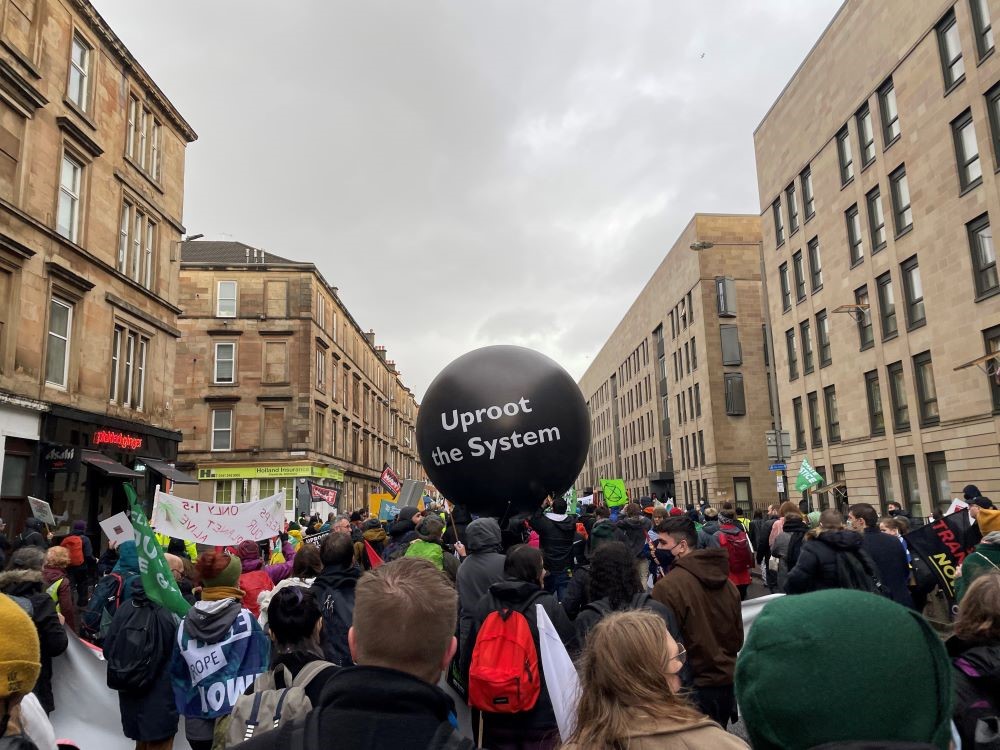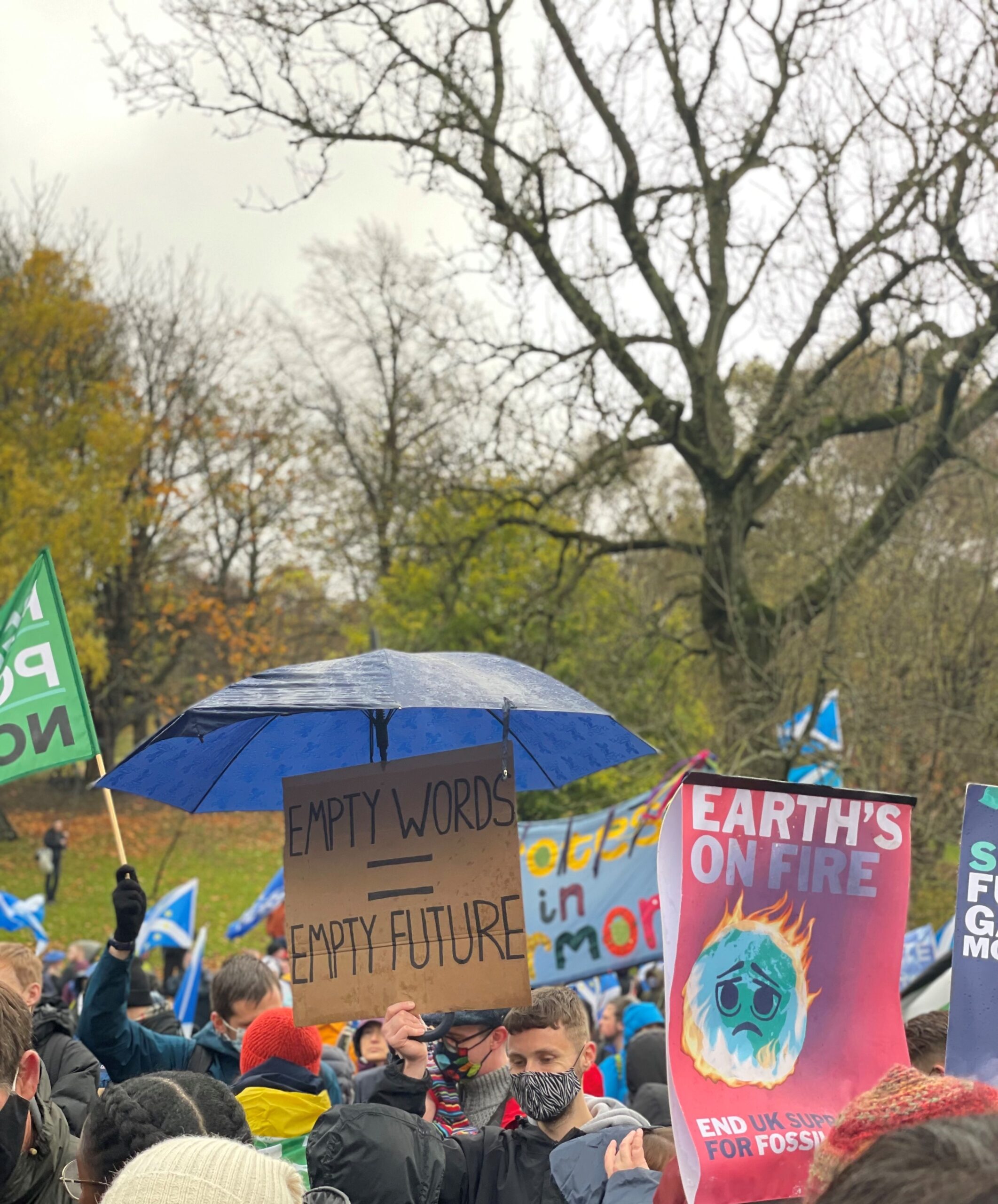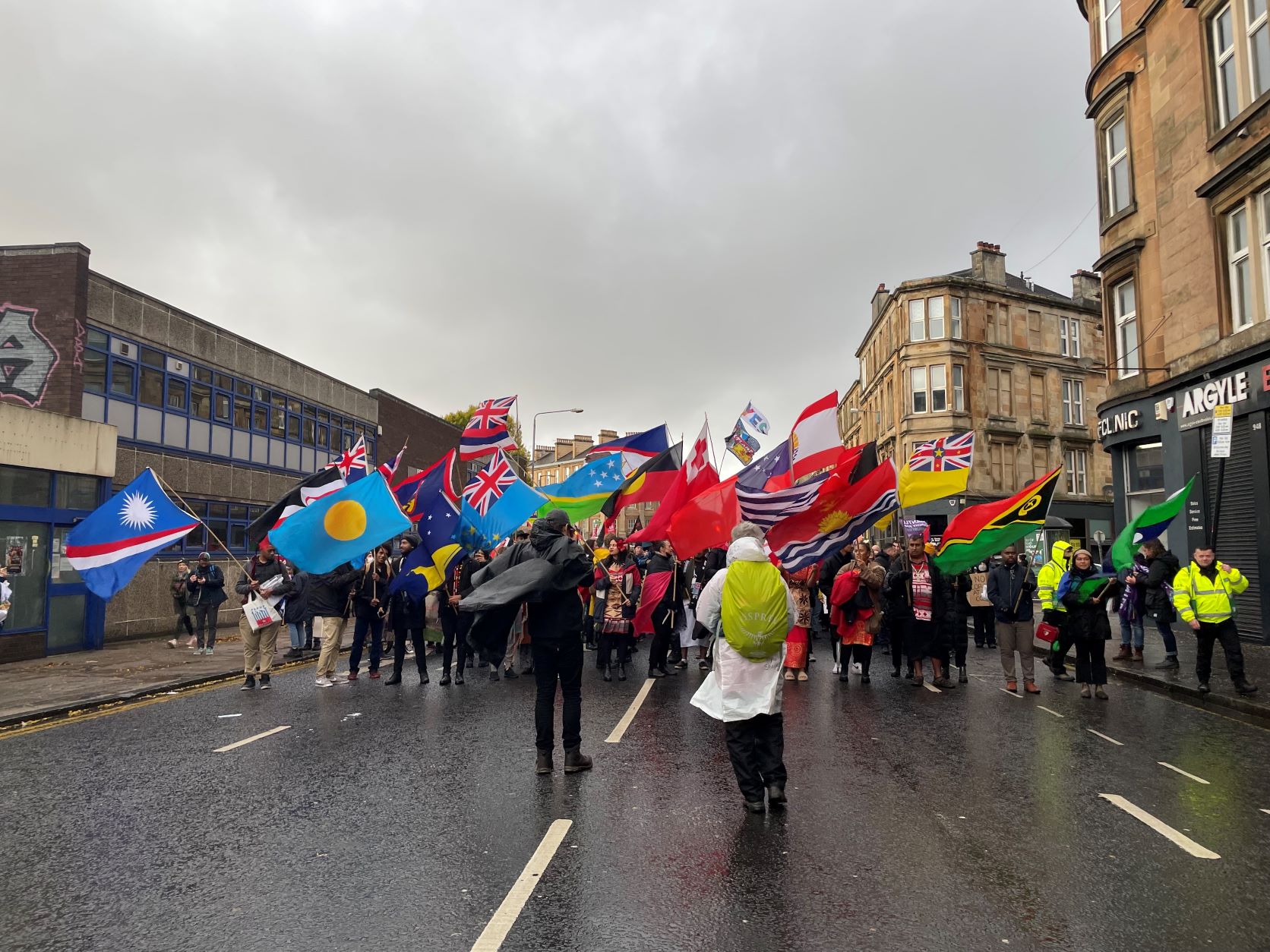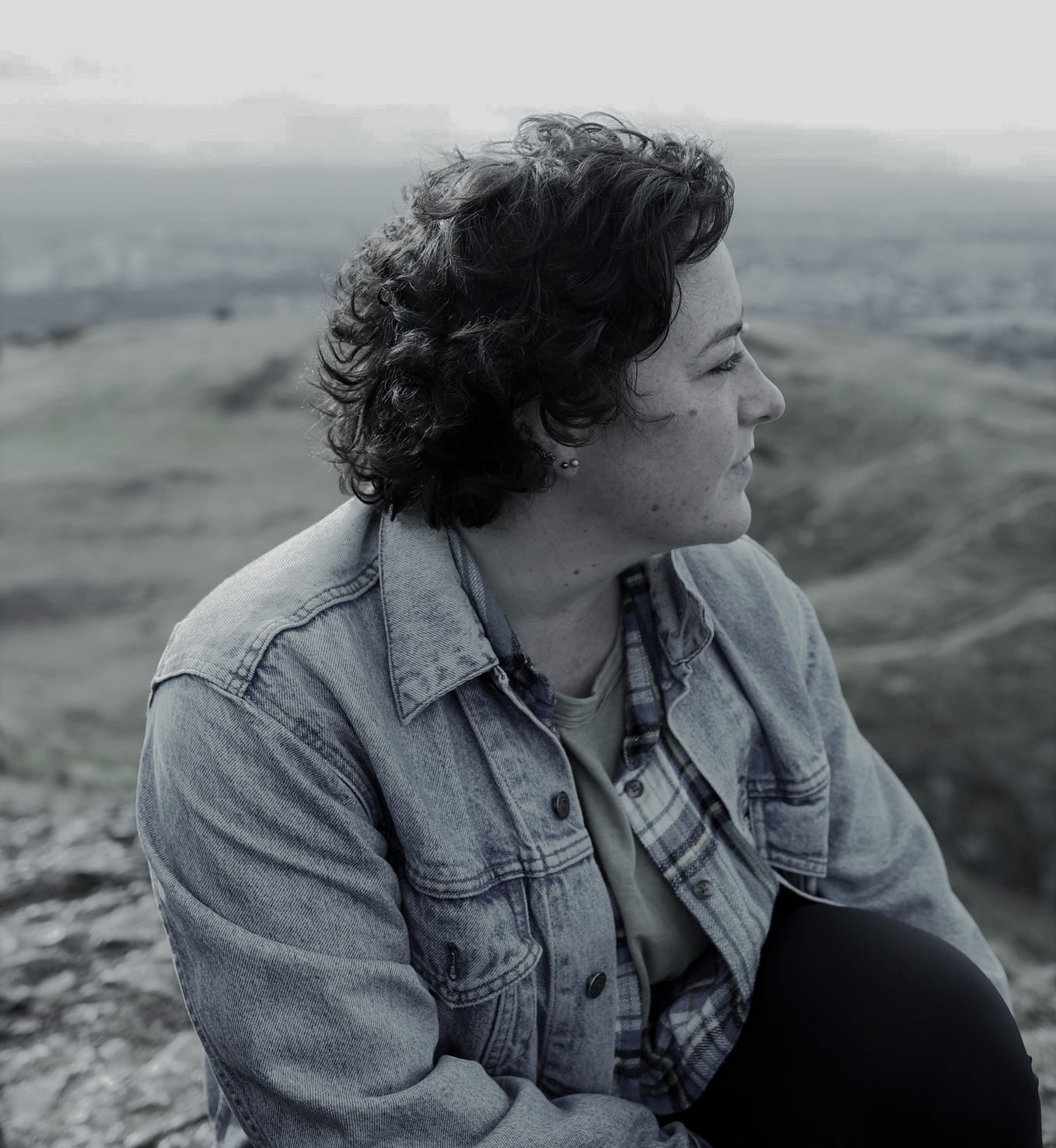
In this post, Olivia Thomakos challenges us to question the barriers to learning outside the classroom when the agenda for combatting the climate emergency is being set by corporations rather than people. Olivia takes us to the streets of Glasgow along with 100,000 other protesters during the COP26 summit to demonstrate the importance of bringing ‘community’ back within climate change discourse. This post is part of November and December’s Hot Topic Theme: COP26 and embedding the climate emergency in our teaching.
As a teacher, I learned that the best thing I can do for my students is to believe in their potential. This belief drives teachers to create challenging curricula with relevant content that encourages students to think critically, to ask questions, and to take charge of their own education. While pursuing my teaching license, I taught a high school student who was financially supporting her family. She often skipped classes to work and considered dropping out of school entirely.
My mentor teacher told her something I will never forget. She said, “Outside this school’s walls, there is not a lot you can control. But here, on this desk, you control everything. You make the decision to read, to write, to participate, to question, to discuss. On this desk, you’re in charge of your present and of your future. And no one can take that away from you.”
Today, I wonder how true this is. Many youth climate activists are not only taking responsibility for what is on their desk, but for what is in their community, what is in their ancestral history, and what is happening in their city, country, and planet. These activists see the urgency of the climate crisis and question why elected officials are not listening to scientific evidence: that we must stop burning fossil fuels and emitting other planet-warming greenhouse gases if we are to inhabit a liveable planet.
The fossil fuel industry had more delegates at COP26 than any one nation. Youth activists were repeatedly shut out of climate negotiations that as UN designated Observers, they had a right to be present, interact, and intervene in. Instead, state department negotiators allowed fossil fuel lobbyists, the perpetrators behind this crisis, to control conversations regarding carbon markets, loss and damage, and climate financing. Communities most affected by climate change, but contributing the least, were not granted the same platforms.
Youth activist Greta Thunberg shared at the COP26 #FridaysForFuture protest that the Global North’s history of colonialism reveals the racist ideology that some people are worth more than others. Global Economic powers have exploited vulnerable people and their resources, then left marginalized communities in environmental crises, racked by natural disasters and under threat of drowning or burning. Those responsible refuse to make good on their promised financial reparations.

What is the point of a classroom education if everything we teach our students about their potential to be the change they want to see in the world is no longer true? We teach them their right to peacefully protest, yet they are punished. We tell them to call their representatives, but they are ignored. Even if curriculum drastically changes to include detailed historical context and scientific research on climate change, how do students use their knowledge if those in power do not listen, or they renege on their promises?
On 6 November, I marched in the streets of Glasgow with over 100,000 people who challenged norms, thought critically, and decided not to accept the greenwashing propaganda of the fossil fuel industry. I marched alongside parents with babies strapped to their chests, a toddler in t-rex pajamas, teenagers with signs and flags, and three elderly women dressed as frogs. Our hope for the future is grounded in community.
There is a striking photo of two youth activists, Xiye Bastida and Ayisha Siddiqa, embracing after Ayisha shared her own poem on the COP outdoor stage. She read, “What if the future is so soft, and the revolution is so kind, that there is no end to us in sight?” To me, this is the definition of what COP should be: a space for us to remember why we are here and who we are fighting for. Not just our planet, but for each other.
Our learning can no longer stop at the desk. We must listen to the voices of the generation who will inherit the planet, of the most vulnerable and marginalized groups, of frontline communities in the Global South. And we must keep accountable the economic powers responsible for creating this crisis by holding them to their promises of fossil fuel divestment, financial reparations, and investment in sustainable, renewable resources.
We must continue to believe in the potential of a more equitable future for us all.

 Olivia Thomakos
Olivia Thomakos
Olivia Thomakos is a MSc Creative Writing student studying poetry. She is a licensed secondary school educator from Ohio, USA, and has taught English in Malaysia and Spain. Olivia believes education should empower and inspire students to be critical thinkers and life-long learners.
(Headshot by Sara Schleicher, @scschleicher.photo)

